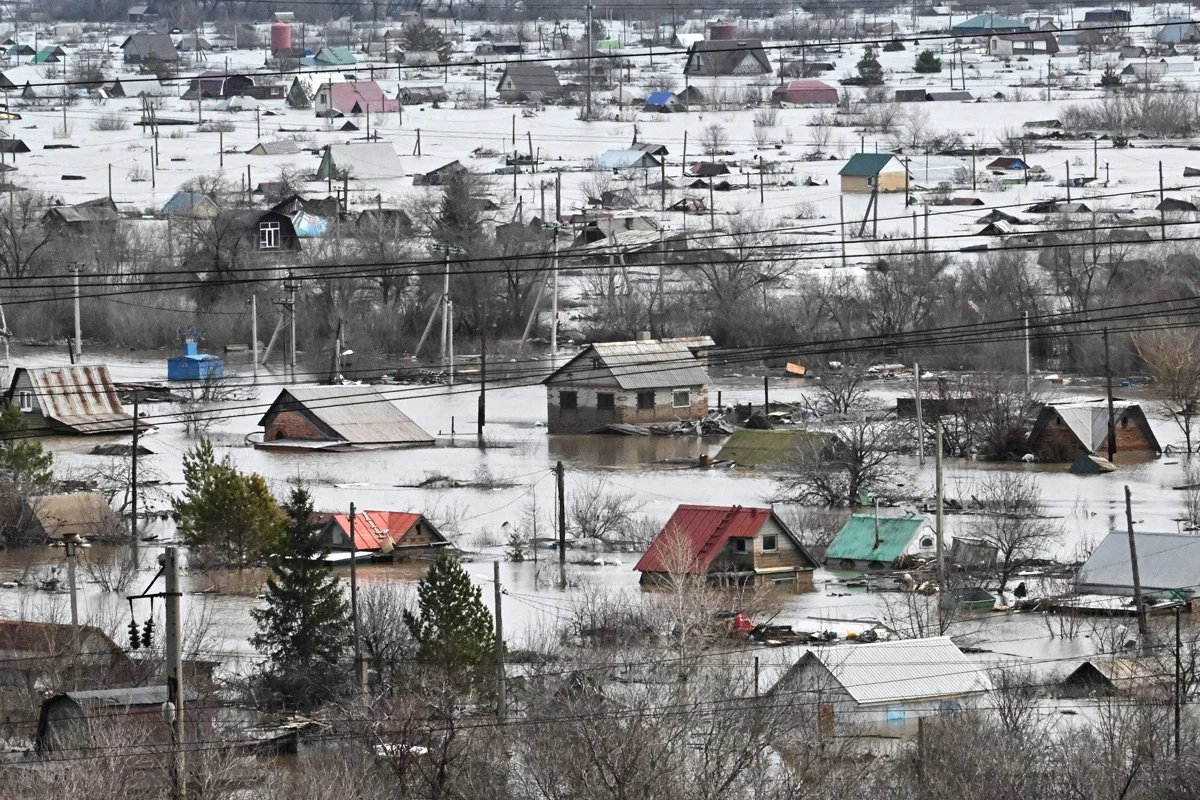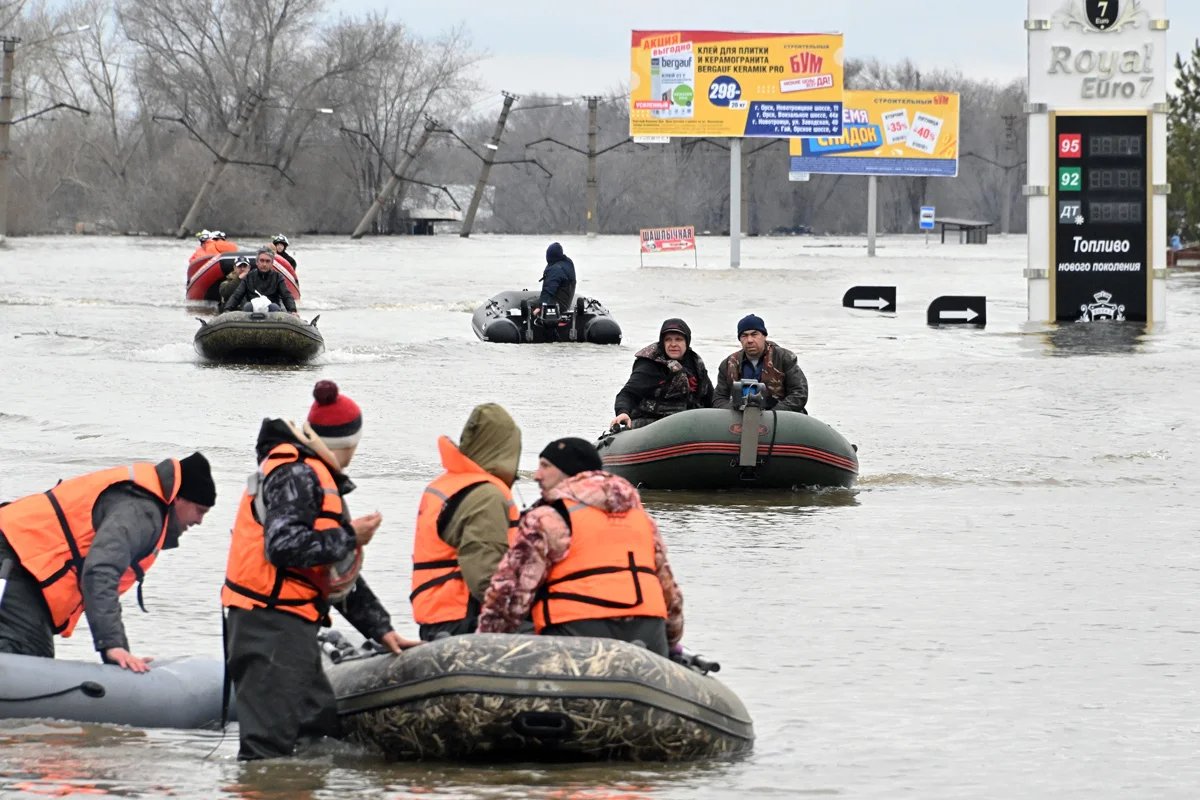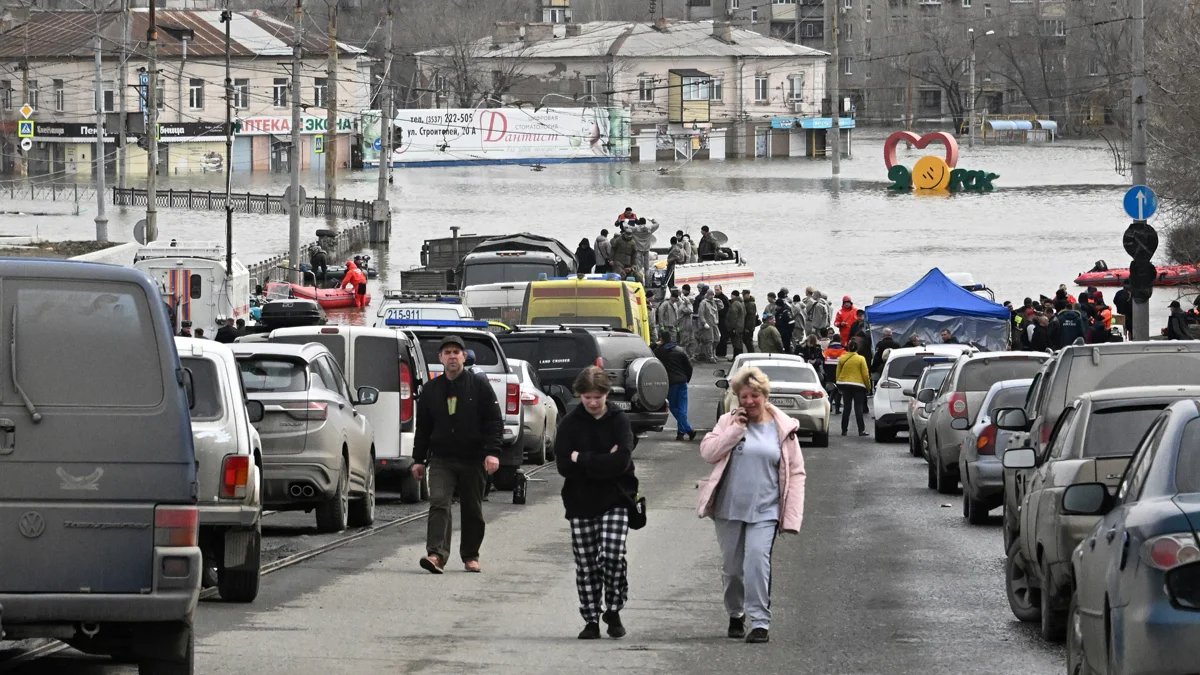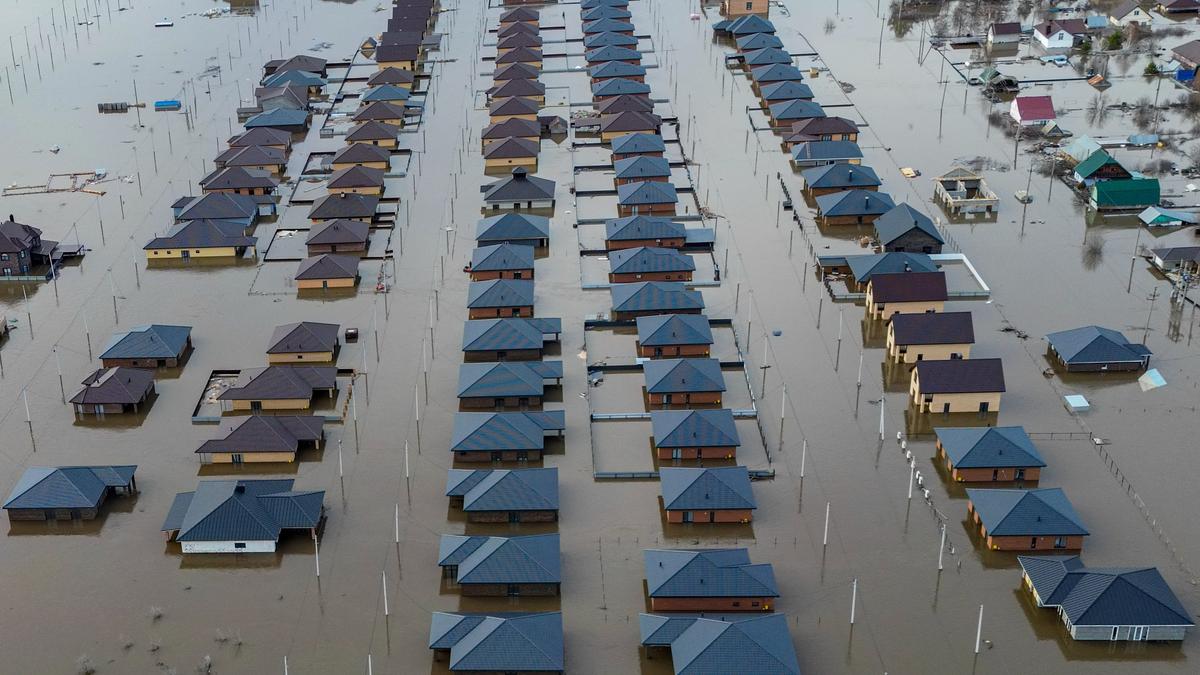Torrential rains across Russia’s Urals, southern Siberia and northern Kazakhstan have caused devastating flooding in the past week, leaving dozens of towns and villages under water, including the two largest cities in the Orenburg region, Orenburg and Orsk.
Disaster first struck when a dam in Orsk burst and collapsed last Friday, flooding much of the city. Two days later, a second dam in the nearby town of Novotroitsk was also breached. With nearly 12,000 residential buildings flooded and over 7,000 people evacuated, a federal state of emergency was declared across the region on Sunday.
Nearly half of all the region’s flooded buildings are in Orsk, where the failings of the official response to the emergency have angered many locals, some of whom even gathered to stage a public protest on Monday, an extremely rare event in today’s Russia.
Warnings dismissed
Just two days before the dam burst, Orsk Mayor Vasily Kozupitska took to social media to reassure residents who had raised concerns about its stability that he and an assistant had examined the dam and found there to be “no threat” of its collapse.

Houses in Orsk flooded following the collapse of the city’s dam, 9 April 2024. Photo: Anatoly Zhdanov / Kommersant / Sipa USA / Vida Press
However, an audit of the dam’s construction found that 50 million rubles (€500,000) were budgeted for work that was never completed. Indeed, since the dam’s construction in 2014, consistent concerns about its structural integrity have been raised, with some locals continuing to inform the local authorities of fresh leaks in the dam just days before its collapse. Rostekhnadzor, the government agency responsible for infrastructure, presented the municipal government with a list of 38 recommended improvements to the dam in 2020, which were not acted upon and had to be re-issued in 2024.
The regional Prosecutor’s Office said that the dam breach had been due to repeated delays in implementing measures designed to keep the structure in “proper working condition”. Criminal cases have been opened to investigate negligence and safety violations during the dam’s construction. According to independent news website IStories, the contractor that built the dam, Spetsstroy-3, is closely linked to the region’s former governor, raising the additional prospect of corruption as well as negligence.
‘Help us, Putin!’
Orsk residents chanted “Shame on you!” and “Help us, Putin!” as they gathered in the centre of the city for an unsanctioned protest on Monday, demanding more effective measures to combat the flooding and an improved response to the emergency on the part of the local authorities.

Orsk residents are evacuated by emergency workers, 8 April 2024. Photo: Anatoly Zhdanov / Kommersant / Sipa USA / Vida Press
Political scientist Nikolay Petrov, a visiting researcher at the German Institute for International and Security Affairs in Berlin, said that while he didn’t believe the rallies would bring about a significant change of approach, noting that residents lacked the means to put pressure on the authorities, he conceded that rallies like the one held in Orsk could at least serve to “demonstrate the inefficiency” of the federal government’s response.
Although Petrov acknowledged the unprecedented severity of this week’s flooding, he said the authorities’ response was symptomatic of a broader problem. “These officials weren’t elected, so they’re not used to communicating with people,” he said, adding that the appointment of inexperienced people to posts in the regional leadership perfectly exemplified “the inferiority of Putin’s management model”.
As the regional authorities are only answerable to Putin, and cannot be held to account by their own constituents, they lack an incentive to hold meaningful dialogue with locals. Instead, they prioritise “impressing Putin”, Petrov added.

Orsk, 9 April 2024. Photo: Anatoly Zhdanov / Kommersant / Sipa USA / Vida Press
Petrov also noted the poor leadership skills demonstrated by Orenburg Governor Denis Pasler in the past week. At one meeting with local residents, Pasler reportedly complained about how much he had been forced to work since the flooding began, and moaned that he had booked a holiday for the first time in five years but had been unable to go take it. He then complained he had been spending all his time with the residents of Orsk, to the extent that he had been unable to change his clothes, sleep or wash.
Kremlin silence
The Kremlin is not particularly interested in “having reputable and popular leaders come to power”, according to Petrov, who doesn’t predict any serious political fallout to the flooding either on a regional or national scale. The Kremlin is actually finding it increasingly difficult to replace regional leaders due to a lack of “figures Putin can trust”, he added.
On 6 April, Putin instructed Minister of Emergency Situations Alexander Kurenkov to travel to the Orenburg region to oversee the emergency response. However, Kurenkov’s arrival only appeared to inflame popular anger by making statements that contradicted those already made by the regional authorities.
Kremlin spokesperson Dmitry Peskov clarified on Tuesday that Putin personally had “no plans” to travel to the Orenburg region, but emphasised the president’s “constant” concern and close monitoring of the situation from afar.
Despite repeated local calls for him to intervene, Putin’s lack of response beyond issuing orders to government ministers, can be chalked up to his inability to empathise, Petrov believes, adding that the president “categorically doesn’t want to associate himself with difficulties, problems, and crises”.
Join us in rebuilding Novaya Gazeta Europe
The Russian government has banned independent media. We were forced to leave our country in order to keep doing our job, telling our readers about what is going on Russia, Ukraine and Europe.
We will continue fighting against warfare and dictatorship. We believe that freedom of speech is the most efficient antidote against tyranny. Support us financially to help us fight for peace and freedom.
By clicking the Support button, you agree to the processing of your personal data.
To cancel a regular donation, please write to [email protected]

